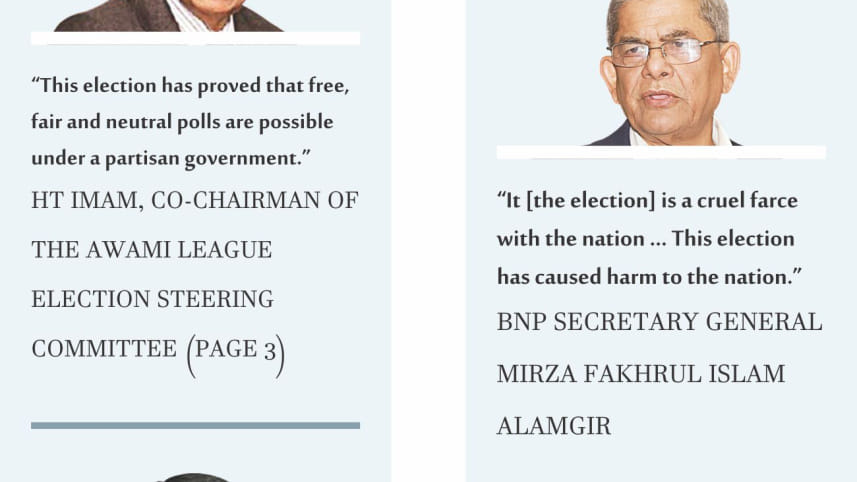Editor's Pick
Amar Ekushey: Fading memories of language heroes
11 hour(s) ago
Bangladesh
Are Bangladesh’s multilingual youth being heard?
21 February 2026, 01:10 AM
Unheard Voices
Bangla in the age of algorithms
21 February 2026, 00:01 AM
Slow Reads Special
What the scheduling fiasco of Ekushey book fair tells us
21 February 2026, 02:05 AM
Blowin’ in the Wind
REFLECTIONS / Hope, doubts, and the fate of this year’s Amar Ekushey Boi Mela
19 February 2026, 19:01 PM
News
What they said
Related News
Two by-polls, 29 years apart – yet so similar?
20 January 2023, 18:00 PM
Views
Polls in Kishoreganj-1 Feb 28
22 January 2019, 13:29 PM
JS Polls 2018
AL’s victory rally is a mockery: BNP
20 January 2019, 12:04 PM
Politics
HC order on petition against oath-taking of MPs today
16 January 2019, 18:00 PM
City
CEC blasts TIB polls findings
16 January 2019, 18:00 PM
JS Polls 2018




 For all latest news, follow The Daily Star's Google News channel.
For all latest news, follow The Daily Star's Google News channel.
Comments